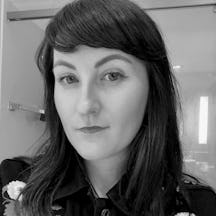It has been assumed for centuries that the wealthier you are, the happier your life will be. As far back as ancient Greece, Aristotle was arguing that things like material possessions, a sense of security, self-sufficiency and an ability to help others were key to happiness. What does this mean for the working class? Em Ledger explores whether traditional definitions of happiness allow poor people ever to be happy.
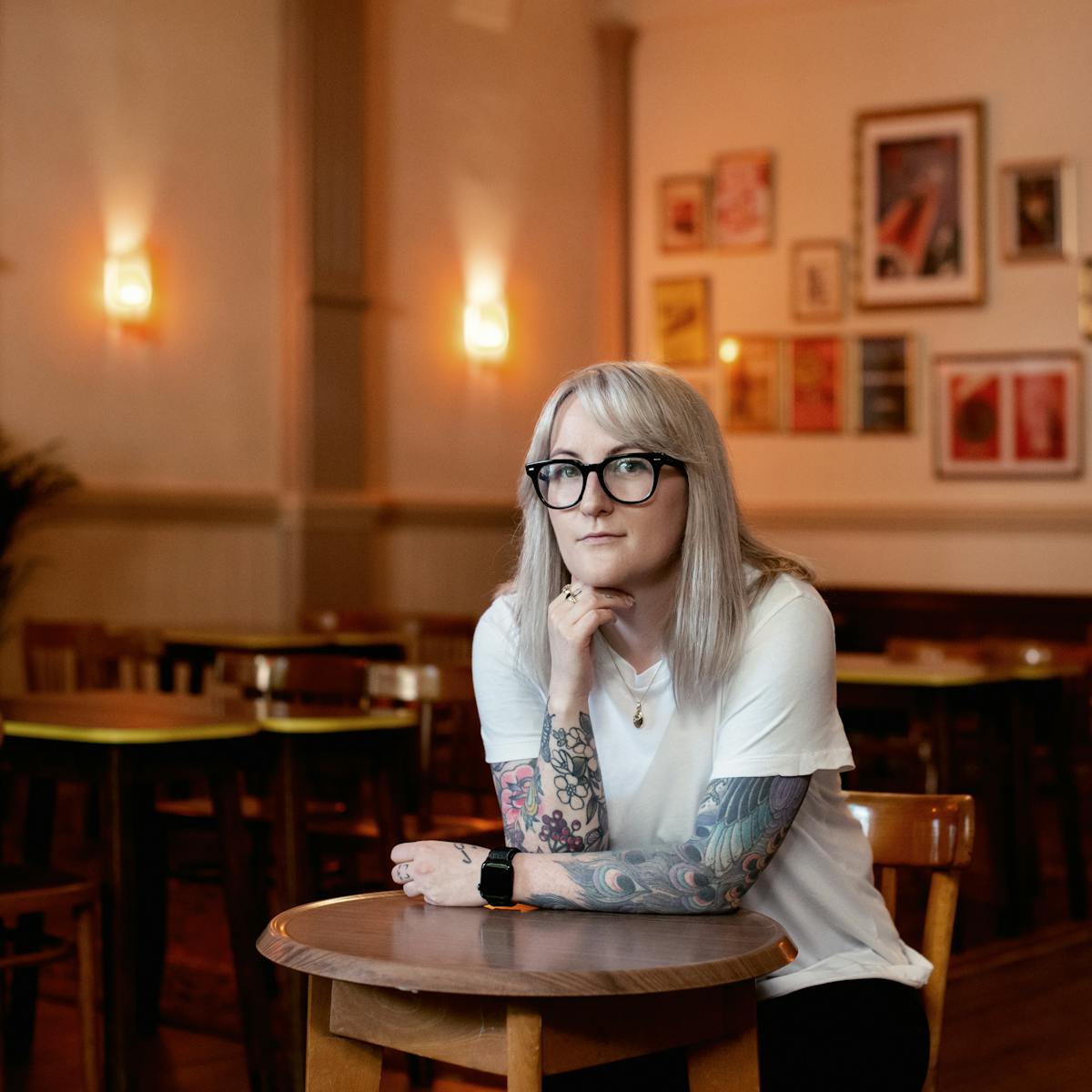
I remember the first time a friend’s parent asked where I lived and the way her brow furrowed in response to my answer. And the time another friend said I couldn’t go round for tea at her house again because her mum said I “lacked manners”.
It’s common for people who grew up working class to distinctly remember the moment we first realised that not everyone was like us. John Steinbeck says in ‘The Winter of Our Discontent’, “It's so much darker when a light goes out than it would have been if it had never shone.” I think this perfectly articulates how it feels to be othered.
We often grow up around people from similar backgrounds, creating and nurturing our own communities. An unknowingly esoteric existence. It often takes an unsolicited comment or experience to elicit a shift in understanding about how we are perceived.
In recent years the working class have been discussed as if we’re a scourge on society. We are demonised for providing what is within our means for our children, our treasured family recipes are deemed basic and unhealthy, the jobs our parents and grandparents held proudly for years reclassified as low-skilled.
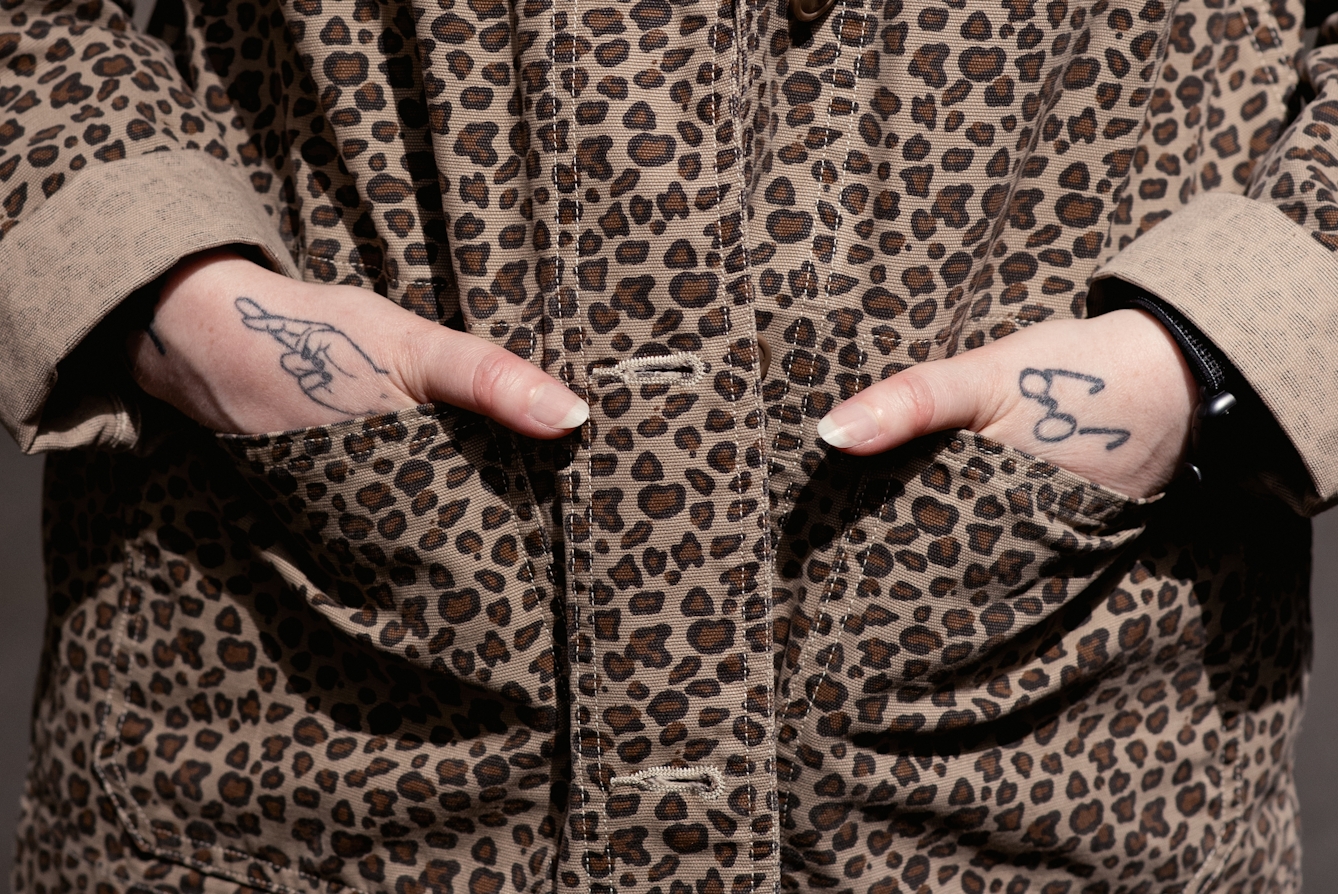
“It’s common for people who grew up working class to distinctly remember the moment we first realised that not everyone was like us.”
Alongside a lack of positive working-class role models and low visibility of our histories and stories, there’s an assumption that everyone starts on a level playing field, with equal access to resources. We’re accused of being unwilling to pull up our bootstraps and work ourselves out of poverty. Any classic celebrated notions of our work ethic, graft and true grit have been replaced with stereotypes of laziness, ignorance and dependence.
If being working class is perceived to be such a negative experience, then it begs the question: can you be poor and happy?
Privileged notions of happiness
The idea that happiness is tied to material things is a long-standing one. In ‘The Four Levels of Happiness’ the ancient Greek philosopher Aristotle describes happiness as coming from four main sources: the ownership of material objects, ego gratification and happiness from comparing ourselves to others, doing good for others, and being able to find and live your true calling.
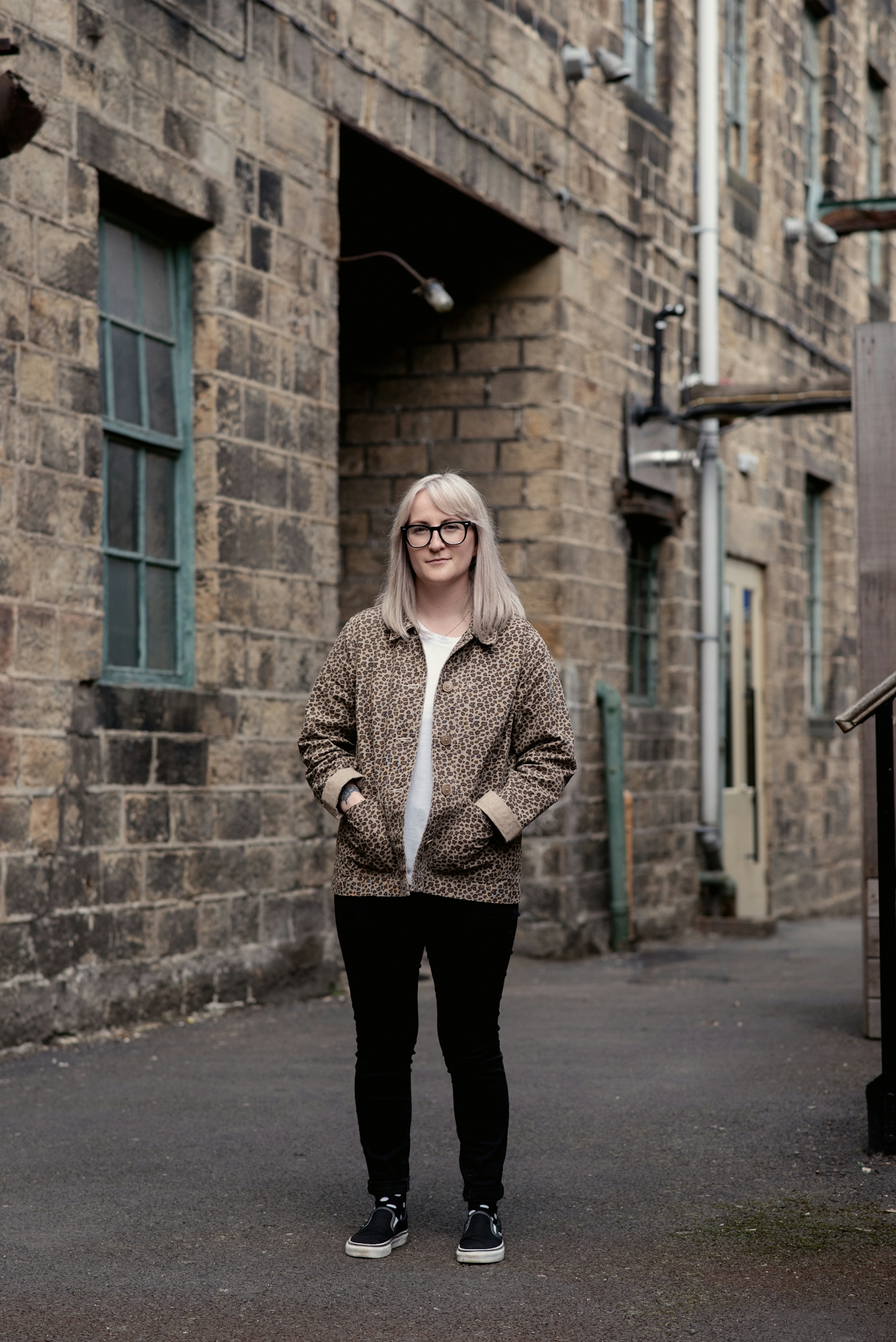
“If being working class is perceived to be such a negative experience, then it begs the question: can you be poor and happy?”
Is Aristotle’s version of happiness possible when you are poor? As an educated man of his time, the philosopher had little understanding of the lives of people less privileged than him, and it shows in his definition of what it means to be happy.
Some material objects are simply out of reach for working-class people or are replaced by more attainable versions. This keeps us content until we start comparing ourselves with others. When we see what the other kids have at school, or we discover we’re the only ones without a car, we start seeing ourselves as inferior.
Aristotle’s third level of happiness is about charity and giving. What about those on the receiving end? If you have only enough money to feed your family and are living pay cheque to pay cheque, there is often no room to donate. If you’re overworked and underpaid, it is hard, nigh impossible to support others financially.
Maya Angelou famously said, “I’ve learned that making a living is not the same thing as making a life.” I think this is testament to her lived experience of both poverty and, later, success.
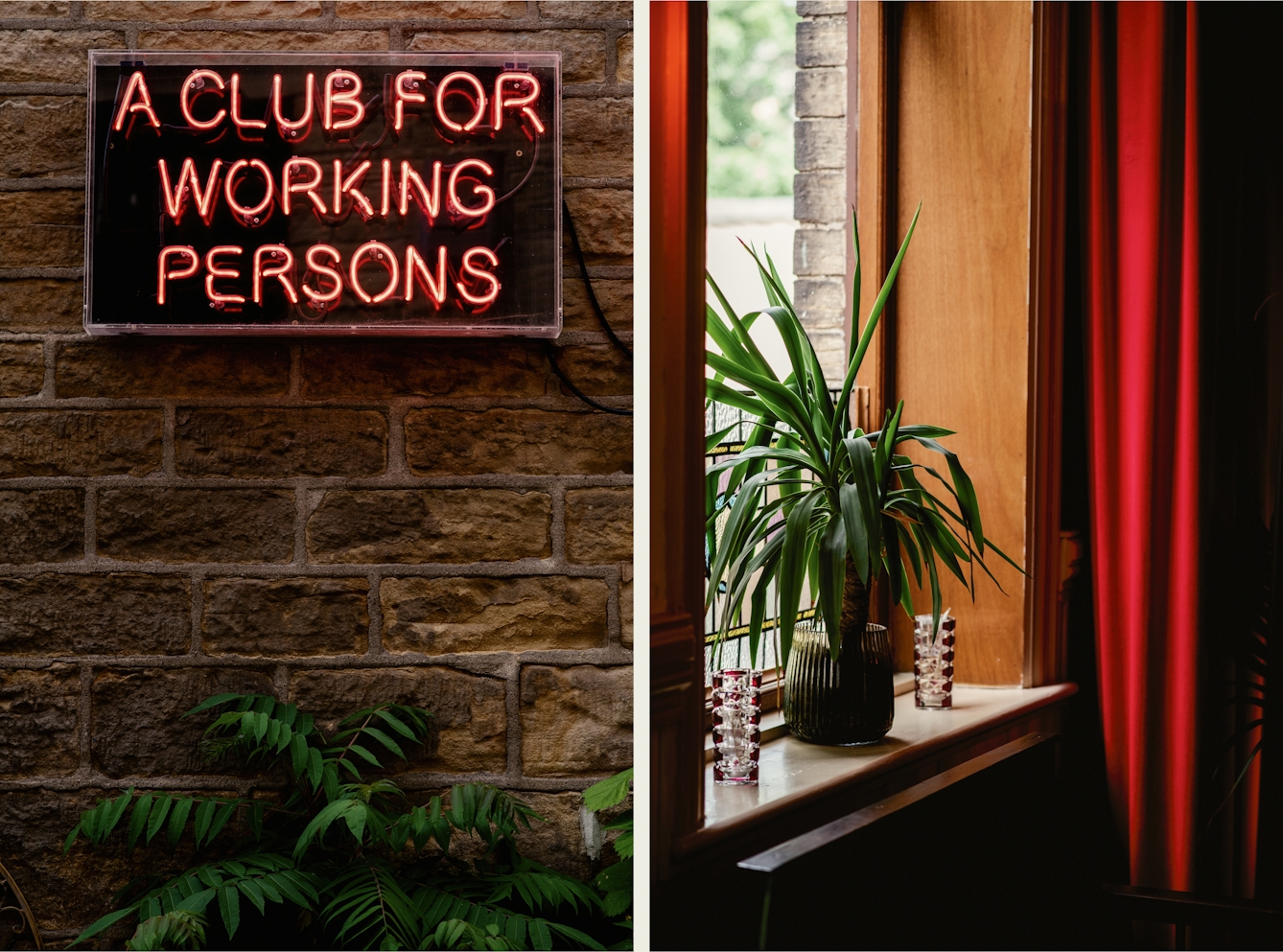
“For me, the culture of the working classes is a proud one, where we want to lift each other up and we will often go without just so someone else can experience happiness.”
The ability to become fulfilled, reach our goals and have the means to work towards a connection to the wider universe comes at a premium. Consider those with passions but who have no time to pursue them outside shift work or long hours.
Voices of the working classes
It’s not a lack of money or material wealth that creates unhappiness – it’s lack of empathy. It’s the lack of real working-class voices in our society and culture and with that the warmth, kindness and strength of people who remain largely unseen.
‘Community’ is missing from Aristotle’s definition of happiness. If his social standing had been different, perhaps he would have valued it more. The phrase “a problem shared is a problem halved” talks to a support structure we all benefit from. And feeling seen by those you share interests, passions and experiences with is important.
It’s not a lack of money or material wealth that creates unhappiness – it’s lack of empathy.
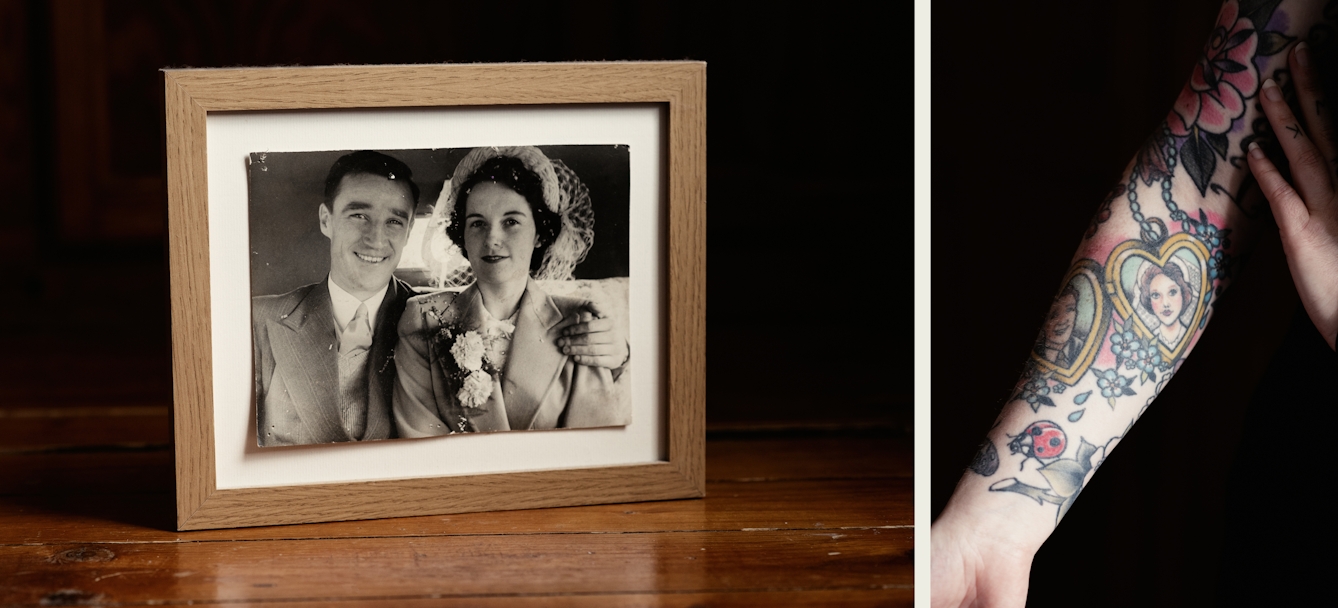
“In the absence of a desire for what we can’t have, we focus on what we do have. One of my most precious things is the tattoo I have of a photo from my late nan’s wedding day.”
For the last nine years I’ve been working on a project called ‘Poor Lass’ with Seleena Laverne Daye. It started out as a zine and is now a podcast and workshop. We host talks too. We set out to lift the voices of the working classes, challenge negative stereotypes and create a place where we could tell our stories in our own words.
So many of the stories we have included as part of ‘Poor Lass’ have focused on the warmth of people’s childhoods. How, even when times were tough, when parents were laid off or worked so hard they were barely around, families came together and supported each other. How generosity and kindness were in abundance. How even the smallest gifts were appreciated all the more because things didn’t come easy.
For me, the culture of the working classes is a proud one, where we want to lift each other up and we will often go without just so someone else can experience happiness, knowing kindness and generosity exists. Money is not the sole focus of working-class life and therefore the loss of it is not felt so much.
In the absence of a desire for what we can’t have, we focus on what we do have. My most precious things are my late nan’s costume jewellery and the tattoo I have of a photo from her wedding day.
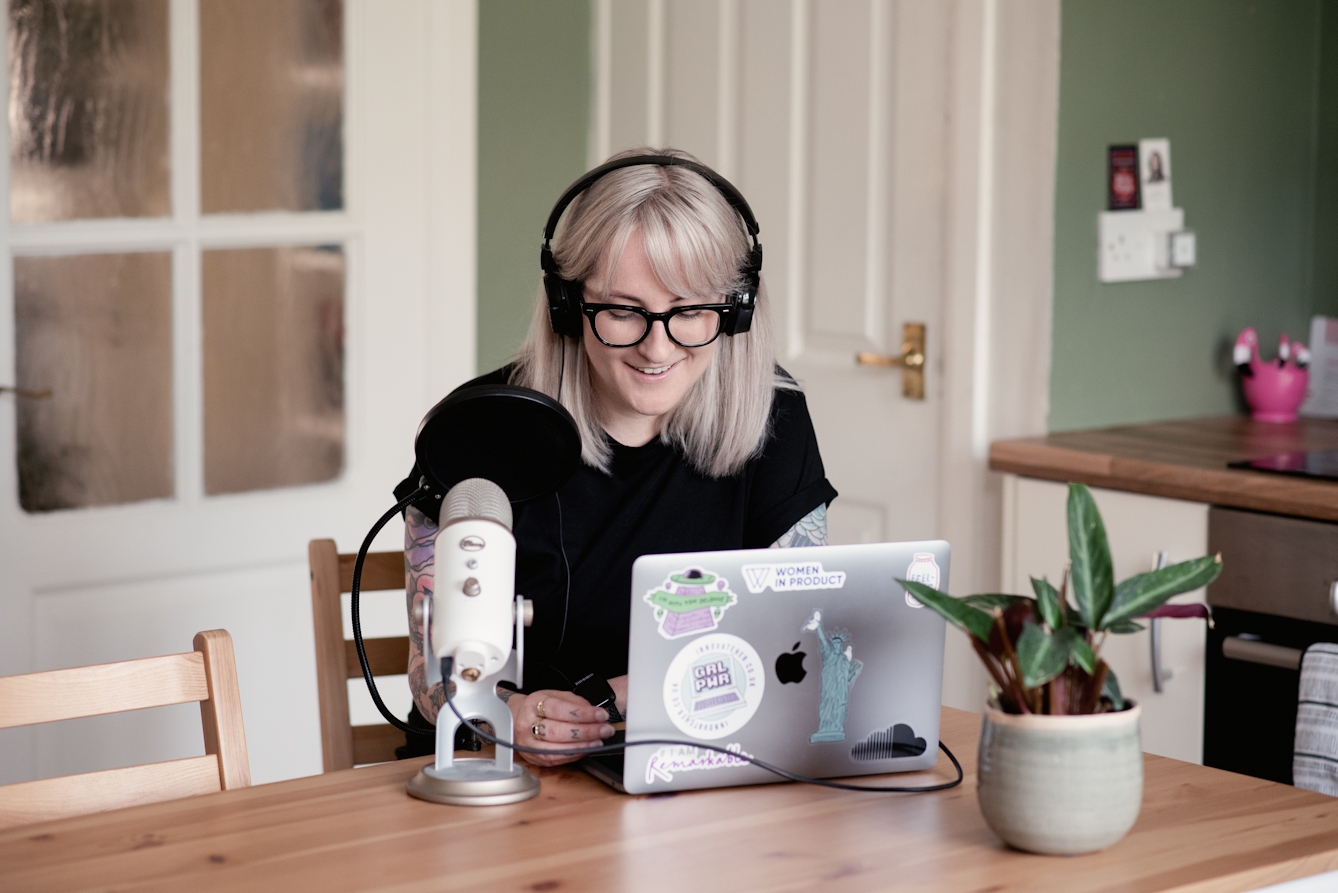
“For the last nine years I’ve been working on a project called ‘Poor Lass’, a podcast where we lift the voices of the working classes, challenge negative stereotypes and create a place where we can tell our stories in our own words.”
Through ‘Poor Lass’ I have been able to share my story and hear so many others from all walks of life. We’ve been able to work with Reclaim, a social change organisation supporting working-class young people, and Tenants Union UK, as well as period poverty, migrant family and food-bank charities.
It brings me so much happiness to know people reading or listening will identify with the topics we talk about and feel a shared understanding. I also hope people’s views may change after hearing our stories.
It’s a small project, but generosity of spirit goes a long way. We don’t make money from it and it certainly doesn’t tick all of Aristotle’s boxes, but I know it makes my family proud.
About the contributors
Em Ledger
Em Ledger works in technology, and is a writer and podcaster based in Yorkshire. She co-runs Poor Lass, a project looking to elevate the voices of the working classes and also her own podcast, ‘Survivin & Thrivin’, on self care and mental health. Em is a passionate advocate for women and girls in STEM.
Camilla Greenwell
Camilla Greenwell is a photographer specialising in dance, performance and portraiture. She regularly works with Sadler’s Wells, Barbican, Candoco, Rambert, The Place, the Guardian, the British Red Cross, Art on the Underground and Wellcome Collection.
